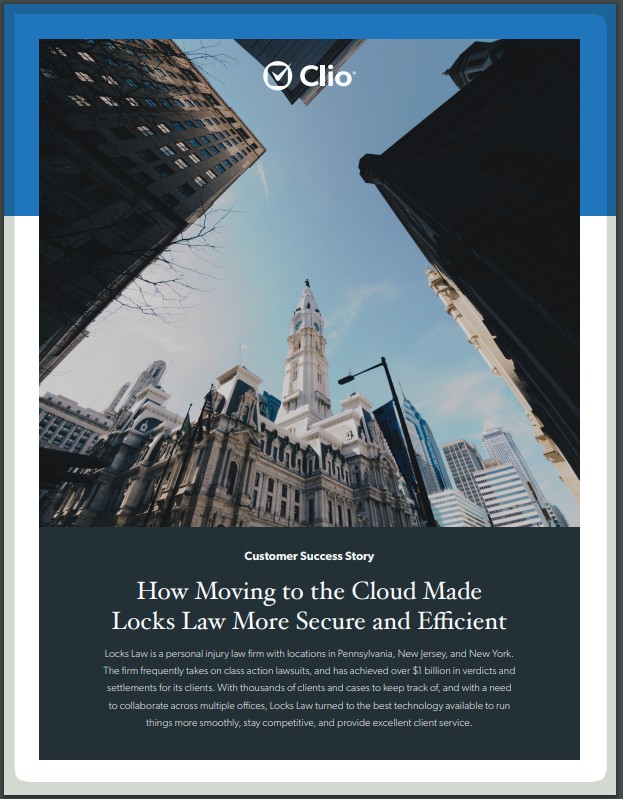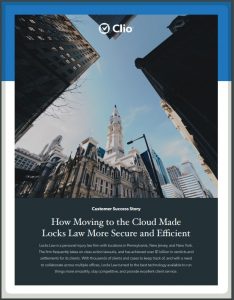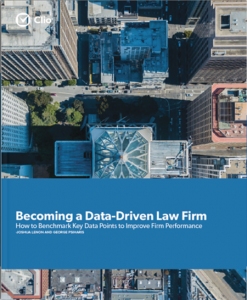 Even though the majority of litigation matters settle out of court, it’s important to have a strategy both you and your client have confidence in so you know it is worth the investment of time and money. To feel completely confident, consider including the following data-driven insights in your litigation strategy.
Even though the majority of litigation matters settle out of court, it’s important to have a strategy both you and your client have confidence in so you know it is worth the investment of time and money. To feel completely confident, consider including the following data-driven insights in your litigation strategy.
1. Financial insights
While, ideally, you should fight to the bitter end for what’s right, that’s not always the best choice. The hard fact is, money matters and you must do what’s in the financial best interest of your client and your firm. This requires you to understand how long a case will likely last and the method by which it may ultimately be resolved. For instance, you don’t want to invest tens of thousands of dollars on experts if opposing counsel has a reputation for settling quickly. Instead, before making big investments, you need to quickly determine how to get what your client wants within the parameters of your time and budget.
2. Jurisdiction insights
If you have proper venue in more than one court, it is important to vet the potential jurisdictions that could hear your case. You want to select the proper court where your case is most likely to have a favorable outcome. You need to understand the amount of experience each court has, the length of time cases tend to take, and how they tend to rule on your specific case type as well as trends with motion practice.
3. Judicial insights
What all judges want is for attorneys to make it as uncomplicated as possible for them to rule on a case. That means writing strong, clear briefs and making strong, clear arguments. What can help is knowing how judges have ruled before as well as the authority they tend to cite. If they have consistently ruled for cases like yours, your strategy can be to use similar factual scenarios and arguments. If they’ve ruled against, make sure your strategy includes how to distinguish your case from those they’ve ruled on previously. Furthermore, know what motions they’re inclined to grant or dismiss and how often your judge has admitted or excluded expert testimony so you save everyone’s time and money.
4. Insights on opposing counsel
Stay on the offensive and be proactive by knowing what you’re up against with an opposing counsel. You should have an understanding of their level of experience with this type of case, as well as the typical behavior and habits of your opposing counsel. Explore their success rates with similar cases and what their history has been with certain judges. Do they tend to settle quickly? Do they tend to file motions to dismiss? Do they tend to work with a particular expert witness?
Using these insights will help you build a more informed case strategy. But for many, the challenge is finding the time and resources to research and identify these data points. Gathering this information usually requires hours poring over motions, dockets and rulings to identify trends. As a result, attorneys often reach out to colleagues or outside counsel for input, trust their gut or personal experience or worse yet, skip gathering these insights altogether.
Now there is a better and easier way to uncover these data-driven insights to fuel your litigation strategy – Westlaw Edge. With Litigation Analytics on Westlaw Edge you can quickly see insights on judges, courts, attorneys, law firms and case types presented in easy to digest charts and directly access the underlying content to gain additional details and insight. Sign up for your own demo of Westlaw Edge and discover how easy it can be to develop the litigation strategy that achieves your goals.
***
 Amy Larson is a Director in Small Law Firm Customer Marketing at Thomson Reuters. She has over 17 years of experience in technology marketing with extensive focus on learning how technology can meet the needs of attorneys. Amy has been involved in numerous product launches throughout her tenure, public relations efforts, interviewing customers and telling their stories, and often writes and distributes information on how legal technology can help small law firms with their practice of law and law firm management responsibilities.
Amy Larson is a Director in Small Law Firm Customer Marketing at Thomson Reuters. She has over 17 years of experience in technology marketing with extensive focus on learning how technology can meet the needs of attorneys. Amy has been involved in numerous product launches throughout her tenure, public relations efforts, interviewing customers and telling their stories, and often writes and distributes information on how legal technology can help small law firms with their practice of law and law firm management responsibilities.















 Get a better starting point with attorney created legal documents, checklists, guides and more. »
Get a better starting point with attorney created legal documents, checklists, guides and more. » Gain a clear strategic advantage with the fastest answers and most valuable insights. »
Gain a clear strategic advantage with the fastest answers and most valuable insights. » Simplify your matter management, client communication and financial reporting in one seamless tool. »
Simplify your matter management, client communication and financial reporting in one seamless tool. »